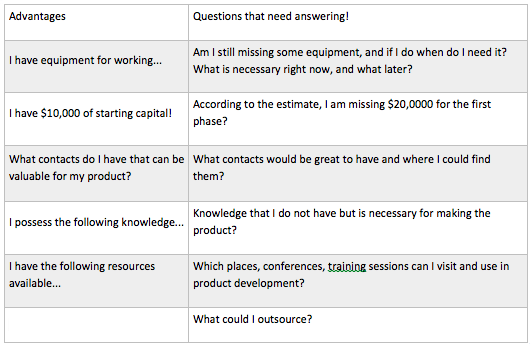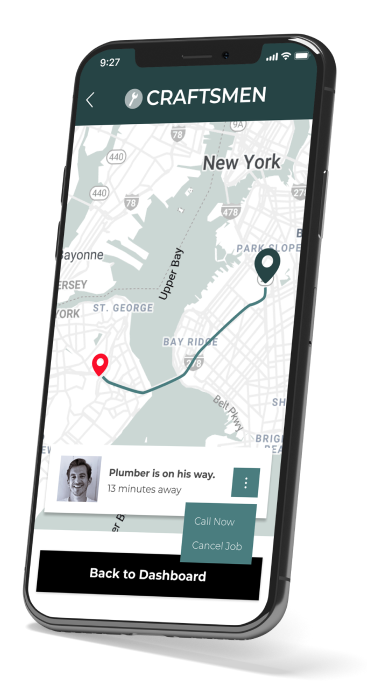When is the right time to develop your product – Part 1

An old Chinese proverb says:
“The best time to plant a tree was 20 years ago. The second best time is now.”
The time to start developing your software product was probably 15 to 20 years ago, when Amazon, Google and many others were starting. The second best time is as soon as possible.
A journey of a thousand miles begins with a single step. Sometimes this may even be simply thinking about your own software product.
Of course, this advice is applicable if you know what you want to do, which product you want to make and ultimately put on the market. Generally, what I find interesting is when people say they are always looking for something that no one has ever done before or when we are trying to pitch an idea and they are told that it already exist. My question is: so what if it exists? There are also millions of supermarkets, clothes shops, shops selling phones, laptops and technical equipment, and again, there is always someone doing a better job than someone else. Indeed, if you have such a product, then you are truly lucky to develop something nobody else has in the sea of the inventions.
The point is the extent of your passion to make your own product, because you are likely to develop something that is much better than something that already exists. The product may vary by the number of features it has or by the type of service, marketing, product placement, etc.
This is one part of the story. Suppose you have an idea, you know what you want to do and you have defined a (rough) plan. Then what? The first step is to define what you know and what your strengths are, but also you need to define your weaknesses. For example, if you are more technical, we can assume that business development is not your strong side, marketing as well, or if you are an entrepreneur then technical skills are your weaker side.
I suggest taking the following steps, but only after defining the idea for the product you will make. It’s similar to you beginning to conquer a certain region which you have not conquered so far. Apply military doctrine to determine the right time.

1. Define your strategic position, your strengths and weaknesses. Think about what I have and what I am still missing. Who I can take for an ally, and your allies can be technical professionals, also people from marketing, investors, banks, contacts of importance, etc. It is also important here to define which allies you cannot find and work resources of any kind (laptop, camera), everything that is necessary for the development of your product. Example:

The more things you list, the better, the more questions you ask and answer, the better. I advise you to do this on a number of occasions, not at once! Return to the table again and again!
Here you need to decide whether you will enter the battle at this time or you will wait for a better time to start the campaign.
2. Precisely define your abilities. Suppose you have a company that provides certain services and you want to switch from a service-based to a product-based company. When you become aware of all your strengths and weaknesses, it is necessary to determine how much and how you can find what you lack i.e. how much it is going to cost you to identify drawback, both time and money, and whether it is at all feasible.
Example: Suppose you have a company that does programming services for clients. Probably, you were previously dominant in a business areas, such as: fintech, e-health, CMS or something else. Your team now has some experience in these areas. Since you are a provider of services, it is likely that you have a certain staff list on hold and that you have certain junior practitioners who do not have a portfolio built and no experience in project work. Over time and through your experience, you have come to understand what can be improved in work. I’m sure that good people are hard to find so you are trying to keep the existing ones and to keep them happy. Most IT developers are not happy if you only give them money and not allow them to work on a particular project. Accordingly, use things that were your drawbacks as an advantage i.e. you can do a classic example of utilization. Since you have some staff that simply has to be paid and wants to work on a specific project, the best way is to start your own product. What do you get by this?
- Experienced employees will develop something new
- Inexperienced ones will acquire experience
- Time is not a decisive factor, though it matters, but you are not pressured
- Money is invested anyway
- Integrate teams within the company
In the case you lack funds, you can offer a certain percentage of ownership of the idea to a particular team and that way you compensate for part of the material aspect. You will get a lot more than money alone could get you.
Such products are not necessarily profitable and, although in most cases they can be (open source) projects that will show others what you really know. You can get new leads, feedback, increase trekking to your website, improve your SEO and many other benefits. This is true only in cases where you already have a software company that offers certain services!
This is negotiating with allies, what to expect from support! Here you decide where the attack will take place.
To be continued…




